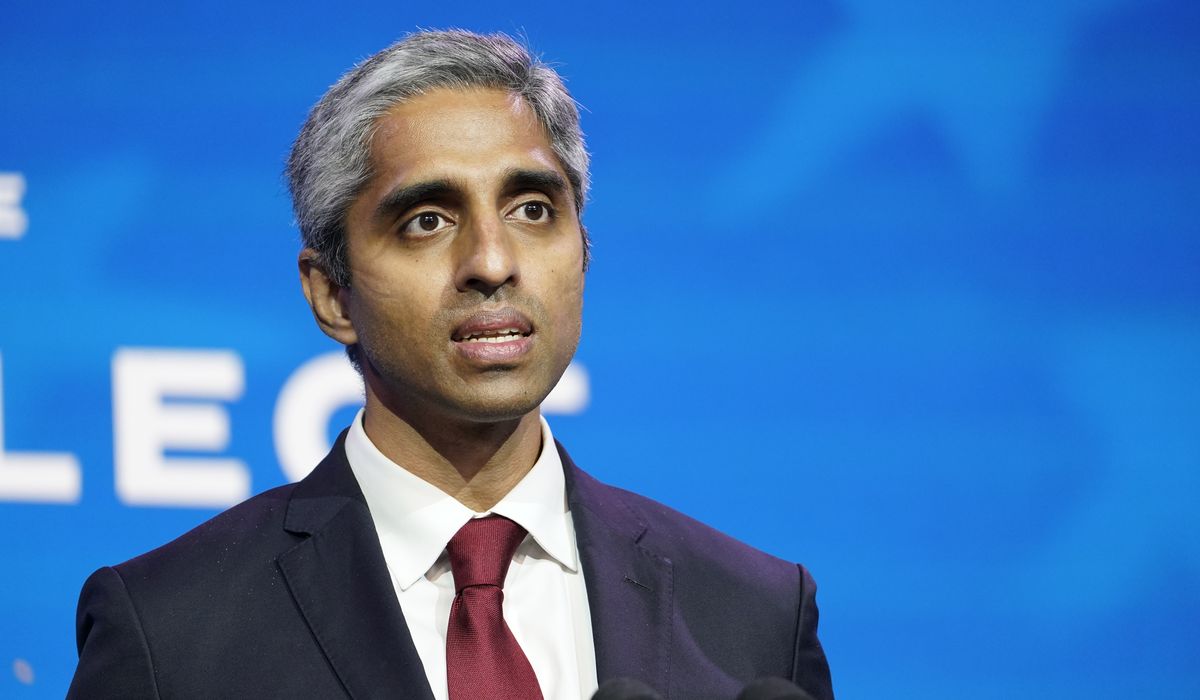U.S. Surgeon General Vivek Murthy on Thursday pleaded with social media companies and all Americans to watch for bogus information about COVID-19 vaccines and take steps to limit its spread.
As the push to vaccinate the U.S. stalls, Dr. Murthy pointed to research showing two-thirds of unvaccinated adults had heard a vaccine myth and believed it to be true or weren’t sure what to think. He said false stories about vaccines are more likely to spread online than true ones and bad information around the shots is dividing families, putting the country short of the immunity levels it needs to stiff-arm the virus.
The Biden administration is worried that misplaced concerns about the vaccines — for instance, worries about fertility are common — are holding back the nationwide push to outrace the virus and its aggressive variants. Less than half — 48% — of the U.S. population is fully vaccinated, and there are wide disparities in vaccination rates from state to state.
Dr. Murthy, in his first surgeon general’s advisory of this administration, urges families to intervene if relatives are using untrustworthy sources to learn about the shots.
“Listen with empathy, establish common ground, ask questions, provide alternative explanations and sources of information, stay calm, and don’t expect success from one conversation,” the advisory says.
Educators should teach students how to identify unqualified persons who pose as experts online, while hospitals and doctors can dispatch their professionals into the community as trusted voices on vaccines.
Social media companies should configure their algorithms to make sure misinformation isn’t amplified and build in “frictions” — warnings, essentially — to reduce its spread, while hiring multilingual teams to monitor for bad information on their platforms.
The advisory prods journalists to examine the scientific evidence so they don’t skew debates.
“If evidence is not equally strong on all sides of an issue, avoid presenting it as such,” the advisory says.
Health misinformation isn’t a new phenomenon. Myths have held back the HIV/AIDS fight for years, and politically charged falsehoods swirled when Ebola broke out in West Africa in 2014.
But “in recent years it has spread at unprecedented speed and scale, especially online,” the Murthy advisory says.
“As surgeon general, my job is to help people stay safe and healthy, and without limiting the spread of health misinformation, American lives are at risk,” Dr. Murthy said. “From the tech and social media companies who must do more to address the spread on their platforms, to all of us identifying and avoiding sharing misinformation, tackling this challenge will require an all-of-society approach, but it is critical for the long-term health of our nation.”



















